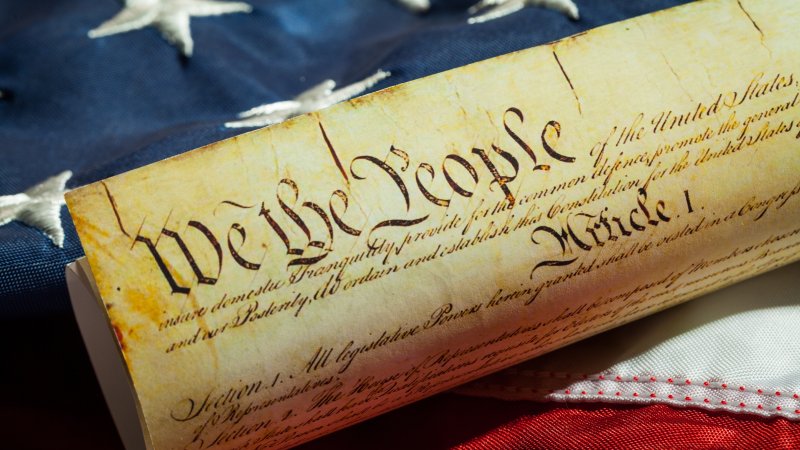
-
HOME
-
WHAT IS STANDOur Mission Our Values Our Help Contact
-
WHAT WE FIGHT FORReligious Freedom Religious Literacy Equality & Human Rights Inclusion & Respect Free Speech Responsible Journalism Corporate Accountability
-
RESOURCESExpert Studies Landmark Decisions White Papers FAQs David Miscavige Religious Freedom Resource Center Freedom of Religion & Human Rights Topic Index Priest-Penitent Privilege Islamophobia
-
HATE MONITORBiased Media Propagandists Hatemongers False Experts Hate Monitor Blog
-
NEWSROOMNews Media Watch Videos Blog
-
TAKE ACTIONCombat Hate & Discrimination Champion Freedom of Religion Demand Accountability
Teaching About Religion vs. Teaching Religion—What Is and Isn’t Constitutional
A federal judge dismissed a suit by Libby Hilsenrath, a New Jersey mother who claimed that a seventh-grade social studies course entitled “World Cultures and Geography,” which includes information on all of the world’s religions, attempted to indoctrinate students in the Islamic faith.

The plaintiff and her attorneys cited course materials presented from the viewpoint of Muslims that quote Muslims making such statements as “Allah is the creator of everything.”
Before filing the lawsuit against the Chatham School District in 2018, Hilsenrath and another parent made their claims on national TV, which led to further media and a storm of controversy.
In dismissing the lawsuit, Federal District Court Judge Kevin McNulty first commented that “Religion… is a fact about the world, and no study of geography and cultures is complete without it.” He went on to say that there is “a line to be drawn between teaching about religion and teaching religion. On the record, I must conclude that the school did not cross that line.” He also stated that it is a valid educational objective to present a religion as its believers see it.
Judge McNulty’s November 2020 decision was based on one of the most controversial Supreme Court cases on the subject of religion in American history. In the 1963 case, Abington School District v. Schempp, the Supreme Court outlawed Bible reading for religious reasons in public school. The Abington decision came roughly a year after another Supreme Court decision outlawed school prayer. The two decisions resulted in numerous attacks against the Supreme Court accusing it of enforcing secularism and led to unsuccessful attempts to amend the Constitution to permit both prayer and Bible reading.
“Religion… is a fact about the world, and no study of geography and cultures is complete without it.”
But the Abington decision, contrary to the claims of its critics, did not ban religion or the Bible from public schools. The majority opinion clearly stated: “In addition, it might well be said that one’s education is not complete without a study of comparative religion or the history of religion and its relationship to the advancement of civilization. It certainly may be said that the Bible is worthy of study for its literary and historic qualities. Nothing we have said here indicates that such study of the Bible or of religion, when presented objectively as part of a secular program of education, may not be effected consistently with the First Amendment.” A few paragraphs later the Justices noted that “the place of religion in our society is an exalted one” and “the State is firmly committed to a position of neutrality.”
As the Chatham case shows, whether religion is being taught to proselytize or for its “literary and historic qualities” can be subject to different opinions and thus contention, much of which has revolved around the Bible rather than Islam. Many people, not just devout Christians, believe that an understanding of the Bible is a vital part of understanding Western civilization. But when it has appeared as part of a school curriculum, it has often led to challenges that biblical education is serving as a front for promoting Christian beliefs rather than just teaching about them. As one of many examples, a number of Christian groups are currently demanding that states adopt laws calling for biblical literacy, i.e. mandating that public schools teach the Bible for literary and historical purposes. This has received support from conservatives. Americans United for Church and State has challenged the campaign, claiming that “the true purpose of these bills is all-too-often to teach religion in public schools.”
Teaching about religion matters and it is something we should stand up for.
I think it is vital that students learn something about religion, including how it has influenced society and the lives of the people who make it up. The goal of watchdogs should be to make sure that instruction doesn’t cross the line into advocacy—not to prevent teaching—while keeping in mind that it isn’t possible to fully understand a religion or philosophy without seeing it from the perspective of its believers.
The Chatham decision comes at a time when education in religion is being threatened. For example, the University of Vermont recently announced its intention to eliminate its religion department, citing the need to close a budget gap. Many have pointed out that the value of religious studies can’t be measured in money and I couldn’t agree with them more.
Teaching about religion matters and it is something we should stand up for. Knowing about others’ religions helps create tolerance and mutual respect. Further, the human race has always had a strong yearning to know the ultimate meaning of things, and the wide variety of answers people have found and agreed and disagreed upon over the years has had considerable influence on the kinds of societies we have created, the ethical and moral standards we have adopted and our efforts to change human life for the better.
What could be more valuable or useful to understand?









